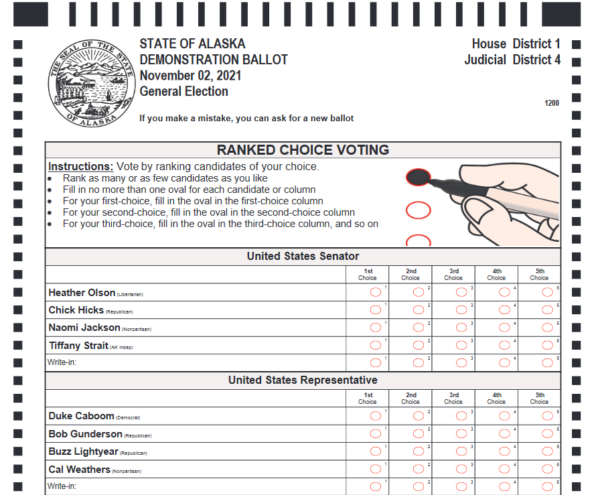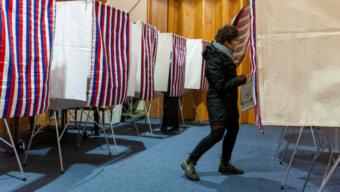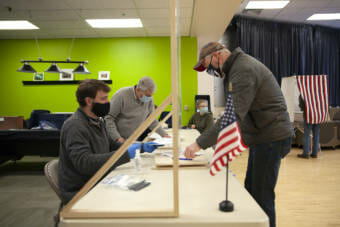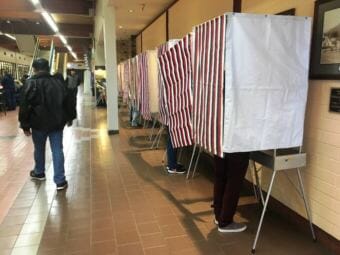
The Alaska Supreme Court upheld the state’s new open primary and ranked choice general election system in a two-page ruling issued on Wednesday.
Scott Kendall is a lawyer who successfully argued the case in favor of the new law, which voters passed in 2020.
He said he’s grateful and relieved.
“Now we have clarity that this law is the law of the land for our elections,” he said.
He said it’s important for all voters to know they can vote for any candidate in the August primary.
“I think it’s a message to candidates, and maybe unconventional candidates, that elections are for you now, too,” he said. “Even if you don’t think of yourself as a partisan or a party person, there is a system and a path for you now, and please take the opportunity and run and give Alaskans all of those choices that they deserve.”
Kendall served as chief of staff to former Gov. Bill Walker, an independent who is running again.
The state Department of Law also defended the law, on behalf of the Division of Elections. A department spokesperson said the quick decision provides clarity so that candidates and voters know the method for conducting elections.
Ken Jacobus is the lawyer who argued against the law. He sued on behalf of the Alaskan Independence Party, Scott Kohlhaas, Robert Bird and himself.
“It’s disappointing, but Alaskans are going to have to live with it now,” he said, adding that he doesn’t think there’s any way to appeal it further. “So the 2022 election will have to be under the new system and we’ll have to see how it plays out.”
He had argued that ranked choice voting violated the provision in the state constitution on the election of governors. And he said the open primary violates political party member’s freedom to associate with who they want to.
Jacobus hoped the court would order a new election on the law, with the changes to the election system separated from another piece of the law increasing the transparency of campaign donations.
“When ranked choice voting and four-winner primary were combined with, ‘well, we have to disclose financial campaign contributions,’ I think that biased the election in favor of campaign contributions, which dragged the other two along with it,” he said.
The justices upheld a ruling by Anchorage Superior Court Judge Gregory Miller. They said a longer opinion explaining the decision would be issued later.
Both Kendall and Jacobus said they believe the court issued the decision just one day after they argued the case to give the Division of Elections time to prepare for the primary.



